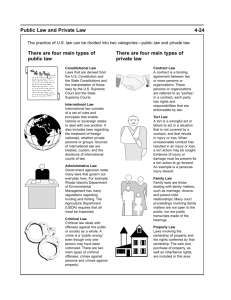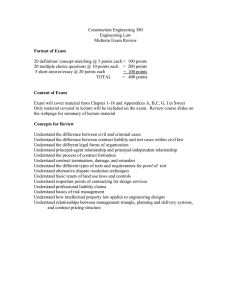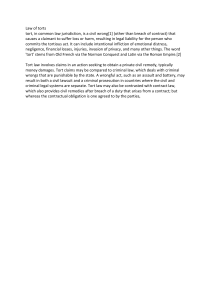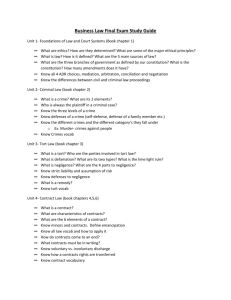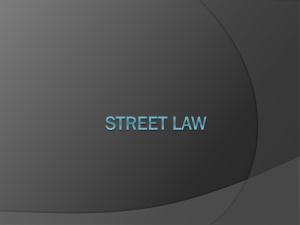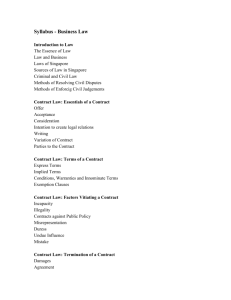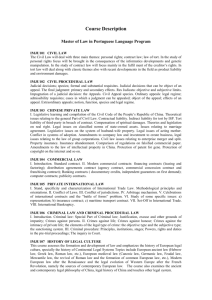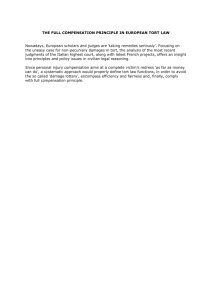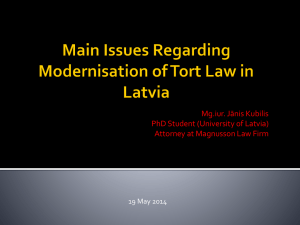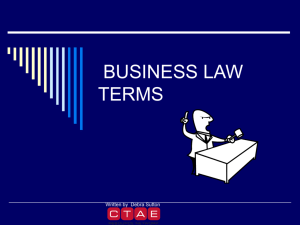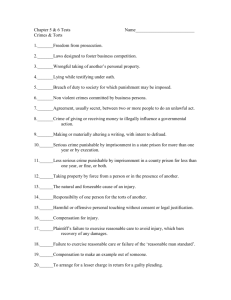BUS-185 Business Law I
advertisement
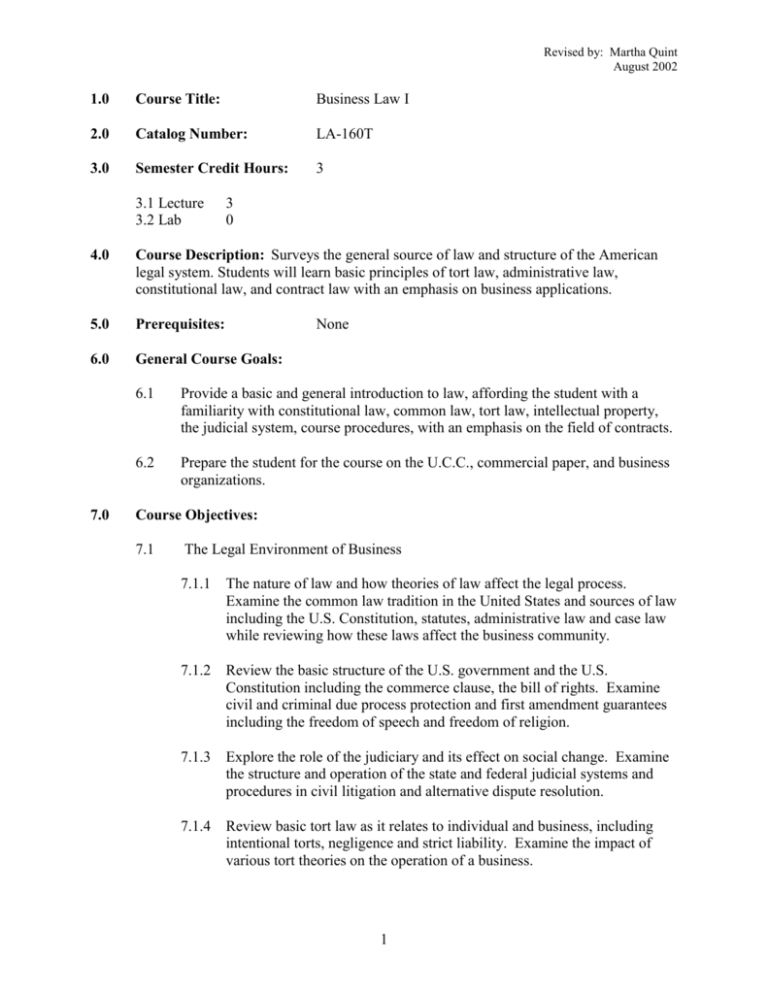
Revised by: Martha Quint August 2002 1.0 Course Title: Business Law I 2.0 Catalog Number: LA-160T 3.0 Semester Credit Hours: 3 3.1 Lecture 3.2 Lab 3 0 4.0 Course Description: Surveys the general source of law and structure of the American legal system. Students will learn basic principles of tort law, administrative law, constitutional law, and contract law with an emphasis on business applications. 5.0 Prerequisites: 6.0 General Course Goals: 7.0 None 6.1 Provide a basic and general introduction to law, affording the student with a familiarity with constitutional law, common law, tort law, intellectual property, the judicial system, course procedures, with an emphasis on the field of contracts. 6.2 Prepare the student for the course on the U.C.C., commercial paper, and business organizations. Course Objectives: 7.1 The Legal Environment of Business 7.1.1 The nature of law and how theories of law affect the legal process. Examine the common law tradition in the United States and sources of law including the U.S. Constitution, statutes, administrative law and case law while reviewing how these laws affect the business community. 7.1.2 Review the basic structure of the U.S. government and the U.S. Constitution including the commerce clause, the bill of rights. Examine civil and criminal due process protection and first amendment guarantees including the freedom of speech and freedom of religion. 7.1.3 Explore the role of the judiciary and its effect on social change. Examine the structure and operation of the state and federal judicial systems and procedures in civil litigation and alternative dispute resolution. 7.1.4 Review basic tort law as it relates to individual and business, including intentional torts, negligence and strict liability. Examine the impact of various tort theories on the operation of a business. 1 Revised by: Martha Quint August 2002 7.2 8.0 7.1.5 Review intellectual property rights of trademarks, patents and copyrights. Examine the effect of the Internet on traditional property rights and current issues presented by modern technology. 7.1.6 Explore the difference between civil law and criminal law. Examine crimes that affect business, issues of criminal liability, defenses to criminal liability and constitutional safeguards. Review cyber crimes and practical issues of prosecution of cyber crimes. 7.1.7 Look at issues of business ethics, ethical standards, and corporate social responsibility. Examine the relationship between ethics and law and the changing environment of business ethics. Contracts 7.2.1 Know the function of contracts, the basic requirements of a contract, types of contracts, and basic contract terminology and interpretation. 7.2.2 Know what is necessary for an effective offer, how offers terminate, what constitutes acceptance and what is necessary for consideration. 7.2.3 Review issues of contractual capacity including minors, intoxicated and mentally incompetent persons. Examine contracts that violate statutes and public policy and the effect of those contracts. 7.2.4 Review contracts lacking genuineness of assent through mistake, misrepresentation, undue influence, or duress. Know the substance and application of the Stature of Frauds. 7.2.5 Know when a third party can acquire rights in a contract through assignment or as a third party beneficiary. Know the effects of delegation or duties and how a contract can be discharged through performance, operation of law or agreement. 7.2.6 Review types of damages available upon breach of contract and nonmonetary remedies that may be sought in contract cases. Examines the issues of election of remedies and limitations of recovery of damages. Course Bibliography: Business Law Today, 6th edition, Miller and Jentz, West Publishing. 9.0 Grading Criteria: 4 Exams and Written Assignment ............................................................... 75 percent Class Participation and Quizzes …………………………………………..10 percent Final Exam ………………………………………………………………..15 percent 2
